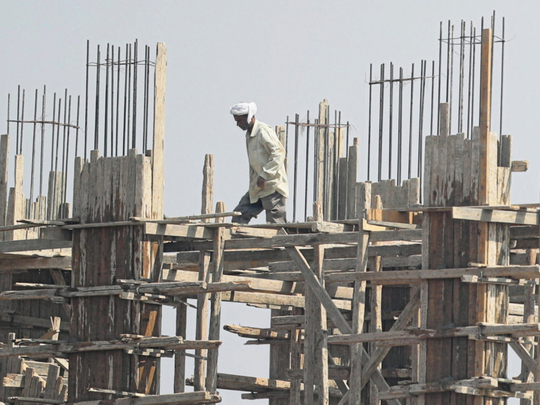
Egyptian pockets are feeling the pinch due to the currency flotation and subsidy cuts conditional upon a $12 billion (Dh44 billion) loan granted by the IMF but there is light at the end of the tunnel in almost every sphere. President Abdul Fattah Al Sissi cognisant of a fast-growing population doesn’t believe in neglecting tomorrow for approval ratings as many of his predecessors have done.
He has big plans and wastes no time in bringing them to fruition. They include 20 new cities around the country to cater for a burgeoning population, among them the administrative capital, the New Alamein City and the New Mansoura City; initial phases of construction are well underway.
Renewable energy projects include solar parks and wind farms. Russia will finance and begin building a nuclear power plant within two years. Discoveries of mega gasfields have not only ensured Egypt’s self-sufficiency, the country is poised to emerge as a regional energy hub with the opening of a petrochemical complex within the Suez Canal Economic Zone, set to be the region’s largest.
Egypt’s Ministry of Petroleum is said to have concluded a deal with Jordan’s Nepco to export 75 per cent of Jordan’s natural gas requirements. Moreover a deal has been signed with Cyprus to construct a subsea gas pipeline to transport gas from the island’s Aphrodite field to liquefaction plants in Egypt before onward transmission to Europe. Just five years ago, the country’s economy was in the doldrums. The government struggled to keep the nation, besieged by enemies within and outside, afloat. Terrorist attacks, violent protests combined with dwindling currency reserves as well as a shortage of oil and gas brought Egypt to the brink of failed state status.
Today, the country is deemed safe apart from small pockets in northern Sinai and the Western desert and life on the streets has returned to normal. Tourists are back in droves. A recent report issued by the United Nations World Tourism Organisation indicates that the tourism increased by 55.1 per cent in 2017 compared to the previous year and that positive trajectory is continuing this year.
Last month, the IMF announced that Egypt’s economy is one of the strongest in the Middle East. The World Bank predicts growth will reach a healthy 5.8 per cent in 2020. Foreign reserves have reached an historical high.
Egypt’s non-oil exports in the first eight months of 2018 show an increase of 11.8 per cent on the same period in 2017. Inflation has fallen from a whopping 36 per cent in November 2016 to 13.6 per cent. Unemployment has dipped to an unprecedented low of 11.3 per cent. In August, Moody’s rating agency raised Egypt’s credit rating from “stable” to “positive”.
The government is currently extending its focus on health care and education. A campaign to test citizens for diabetes, clinical obesity and hepatitis C kicked off on October 1 with the aim of freeing Egypt from the disease by 2021.
An innovative educational project established by Cairo and Tokyo will see aspects of the Japanese system focusing on character building and cleanliness, is being applied in 40 state-run schools in various governorates. All secondary schools are being given access to the internet and over a million Samsung tablets will be distributed to high school students free of charge.
Furthermore, slums are being systematically cleared, their residents offered brand new furnished apartments. The Development of Slums Programme is providing 80,000 units in the fiscal year 2018-2019. The president has promised to re-house all slum dwellers over the coming three years.
There is no gain without pain, yet right now not all Egyptians, especially those in the lower income bracket, are able to see the big shiny bright picture being drawn. The fact is that Cairo has been named the city with the lowest cost of living in the world and the country is ranked as the second cheapest tourist destination globally. In the absence of worldwide economic shocks impacting foreign investment, young Egyptians will surely reap the benefits of President Al Sissi’s forward planning in the years and decades to come.
Linda S. Heard is an award-winning British political columnist and guest television commentator with a focus on the Middle East.








